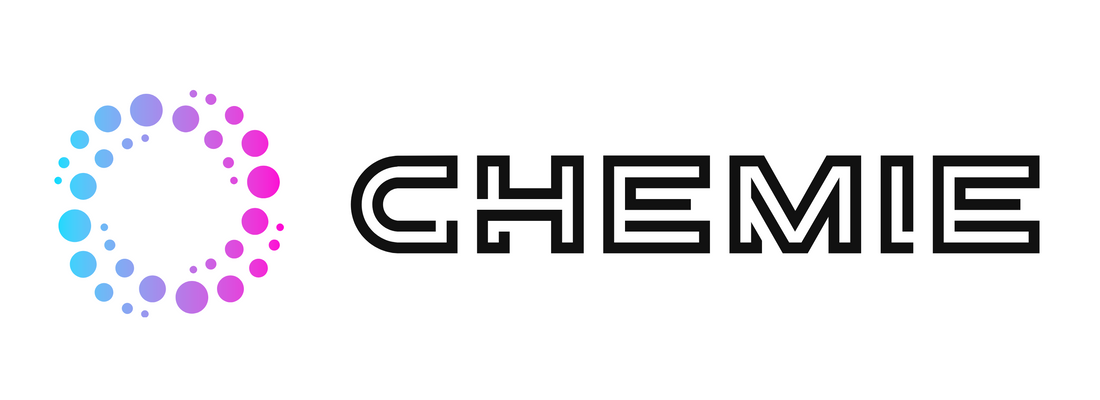10 Easy Facts About Chemie Explained
Table of ContentsSome Known Facts About Chemie.Chemie for BeginnersGetting My Chemie To WorkChemie Fundamentals ExplainedThe Main Principles Of Chemie More About Chemie
(https://www.domestika.org/en/betteanderson)Calculated adjustment in electrical conductivity of liquid examples as a feature of time when stirred with the resin example in the closed indirect cooling loophole experiment. Figure 6 shows the change in the measured electrical conductivity of the fluid samples when stirred with the material sample. The conductivity of the water example from the closed loophole experiment lowered by around 70% from 11.77 S/cm to 3.32 S/cm in six hours.These results showed that the ability of the material relies on the examination fluid used for the experiment. This reveals that different ions present in the liquid will certainly lead to different ion exchange ability of the liquid. For that reason, computing the ion exchange material capability with the liquid sample from the actual air conditioning loop is necessary.
The Best Strategy To Use For Chemie
An ion exchange resin cartridge consisting of 20g of Dowex blended bed resin may take on order 938 days to fill - fluorinert. In other words, to maintain a reduced electrical conductivity, a material cartridge with the dimension and weight spec as that of the material cartridge used in the experiment, need to be altered every 30 months for the air conditioning system that was utilized in the experiment
The cooling of electronic components has become a significant challenge in current times as a result of the improvements in the design of faster and smaller components. Therefore, different cooling technologies have been created to successfully get rid of the heat from these parts [1, 2] Making use of a fluid coolant has ended up being attractive as a result of the greater warmth transfer coefficient attained as contrasted to air-cooling.
More About Chemie
A single phase cooling loophole is composed of a pump, a warmth exchanger (cool plate/mini- or micro-channels), and a warmth sink (radiator with a follower or a liquid-to-liquid warmth exchanger with chilled water air conditioning). The heat source in the electronics system is connected to the heat exchanger. Fluid coolants are likewise used in two-phase systems, such as warmth pipelines, thermo-siphons, sub-cooled boiling, spray air conditioning, and direct immersion systems [2, 4]
The needs might vary depending on the sort of application. Complying with is a listing of some basic needs: Great thermo-physical homes (high thermal conductivity and certain warm; low viscosity; high latent warmth of dissipation for two-phase application) Low cold factor and ruptured point (occasionally burst security at -40 C or lower is required for shipping and/or storage space functions) High atmospheric boiling point (or reduced vapor pressure at the operating temperature level) for single stage system; a slim desired boiling point for a two-phase system Good chemical and thermal stability for the life of the electronic devices system High flash point and auto-ignition temperature (often non-combustibility is a need) Non-corrosive to materials of building and construction (steels as well as polymers and other non-metals) No or marginal regulative restrictions (eco friendly, safe, and potentially eco-friendly) Affordable The very best electronic devices coolant is an affordable and safe fluid with superb thermo-physical properties and a lengthy service life.
Chemie Can Be Fun For Anyone
Most of these fluids have a non-discernible smell and are safe in situation of contact with skin or intake. As stated in the past, aliphatic PAO-based liquids have replaced the silicate-ester liquids in a selection of military electronic devices (and avionics) cooling applications in the last decade. One more class of preferred coolant chemistry is dimethyl- and methyl phenyl-poly (siloxane) or typically called silicone oil.
Fluorinated substances such as perfluorocarbons (i.e., FC-72, FC-77) hydrofluoroethers (HFE) and perfluorocarbon ethers (PFE) have particular special buildings and can be made use of in call with the electronic devices [4, 8] First off, these fluids are non-combustible and non-toxic. Some fluorinated substances have zero ozone diminishing prospective and other environmental residential properties.
Ethylene glycol is anemic and virtually odor free and is totally miscible with water. When correctly hindered, it has a relatively low corrosivity. This coolant is categorized as poisonous and need to be taken care of and disposed of with care. The top quality of water utilized for the preparation of a glycol remedy is really important for the system.
Top Guidelines Of Chemie

Various other than absence of poisoning, it has no advantages over ethylene glycol, being greater in price and more thick. This is an inexpensive antifreeze remedy, locating usage in refrigeration solutions and ground resource warmth pumps. Similar to glycols, this can be prevented to quit corrosion. This fluid can be utilized down to -40 C owing to its fairly high rate of warm transfer in this temperature level array.
It is taken into consideration more damaging than ethylene glycol and consequently has discovered use only for process applications located outdoors. Methanol is a flammable fluid and, as such, introduces a potential fire danger where it is stored, handled, or used.
6 Simple Techniques For Chemie
As a flammable liquid, it requires particular precautions for dealing with our website and storage. Liquid services of calcium chloride find broad usage as flowing coolants in food plants. It is non-flammable, non-toxic and thermally much more reliable than the glycol solutions. A 29% (by wt.) calcium chloride solution has a cold point listed below -40 C.
